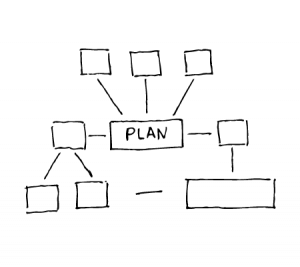Hi everyone,
Firstly, thank you to this forum. I find it difficult to articulate how helpful this forum and website is. Thank you to the pioneers of this website, the people who maintain this website, and the people who unapologetically share their views.
Brief personal background - 35-year old male from South Africa; graduated with an engineering degree in 2009; 2010-2015 worked as an engineer; mid-2015 to date work in supply management albeit project engineering-related spend (i.e. Capex).
What do I want:
1) Career change/pivot to a role in finance, specifically an M&A focused role. In the last few years I have been exposed to project business cases, learnt how to develop a rough business case, learnt how to develop a high-level DCF model for projects, and have had minor exposure to M&A's.
I realise that a career change at my age and with my experience is very challenging, but I would like to think there's a 1% chance I can achieve such a change.
FYI I have no qualms about starting at an entry-level role.
2) Country change to, in order of preference: UAE, Singapore, Malaysia.
FYI I realise the above is what some consider the elusive "triple jump".
Questions to the forum:
1) Again, I realise my chances may be slim. In any case, which masters degree would increase my chances - an MBA or MiF?
Assuming my means do not restrict where I can study (i.e., good GMAT score, tuition funds available, no other personal commitments), which MBA and/or MiF programmes would you recommend I explore further?
Many thanks for reading this post...
Guidance on MBA and MiF options that may lead to work place happiness
Posted Mar 21, 2023 09:09
Firstly, thank you to this forum. I find it difficult to articulate how helpful this forum and website is. Thank you to the pioneers of this website, the people who maintain this website, and the people who unapologetically share their views.
Brief personal background - 35-year old male from South Africa; graduated with an engineering degree in 2009; 2010-2015 worked as an engineer; mid-2015 to date work in supply management albeit project engineering-related spend (i.e. Capex).
What do I want:
1) Career change/pivot to a role in finance, specifically an M&A focused role. In the last few years I have been exposed to project business cases, learnt how to develop a rough business case, learnt how to develop a high-level DCF model for projects, and have had minor exposure to M&A's.
I realise that a career change at my age and with my experience is very challenging, but I would like to think there's a 1% chance I can achieve such a change.
FYI I have no qualms about starting at an entry-level role.
2) Country change to, in order of preference: UAE, Singapore, Malaysia.
FYI I realise the above is what some consider the elusive "triple jump".
Questions to the forum:
1) Again, I realise my chances may be slim. In any case, which masters degree would increase my chances - an MBA or MiF?
Assuming my means do not restrict where I can study (i.e., good GMAT score, tuition funds available, no other personal commitments), which MBA and/or MiF programmes would you recommend I explore further?
Many thanks for reading this post...
Posted Mar 21, 2023 11:37
M&A is one of the hardest areas to get into and, obviously, is hugely cyclical. The key thing here is to get into a great business school so, other things being equal, it's easier to get into a MiF at a great school than into an MBA.
Managing the due diligence process is a key part of M&A success, and so local language skills are very useful. Few South Africans speak Arabic, Mandarin and Bahasa Malay, so if you have a foundation in any of those it would make it easier to hire you in those countries.
In Malaysia, I'd certainly look at the Nottingham MSc in finance and investments as well as MBAs at the top local universities.
In Singapore, NTU and NUS are obvious options, and the Manchester MSc Financial Management could be a choice you could start this September even before moving country (face-to-face workshops (six days, twice each year) in Singapore and Hong Kong could be an interesting option. Manchester has a campus in both the UAE and in Singapore, so it's an interesting option. Insead also has a part-time masters in finance taught in Singapore.
</div><div>
</div><div>
</div>
Posted Mar 21, 2023 16:08
Hi Duncan,
Thanks for the insight regarding the M&A sphere, appreciate it.
I acknowledge that what I am trying to achieve is very difficult and I am in no way naïve about how things may pan out.
Will take a look at the options - thanks for this.
I would like to pursue a full-time option, so the Manchester and Insead options will not suit me (the Insead option also requires candidates to have work experience in finance).
If I forgo #2 of what I want, i.e., a country change, in other words I am happy to return to my home country or work in any country, what MiF (or MBA) programme would you take a bet on in helping me achieve this 180-degree career change? Choose 2-3 programmes please ![]()
(FYI, I am not "flip-flopping" on what I want, #1 remains the main objective, #2 was listed for a specific reason that I can learn to accept and mitigate).
[Edited by justwanttobehappy on Mar 21, 2023]
Posted Mar 21, 2023 16:39
I don't know much about your personal circumstances. Perhaps you can make a transition now through a series of steps and a part-time management degree. For example, you could work for a Big Four consultancy on work related to your current skills. You could move from supply chain and logistics into smaller-scale project finance and RoI assessment, and from there into equity analysis or into larger project finance deals. You could take an [online] Master in Finance from a school in the CFA partner programme, and then qualify as a CFA. All of that could be done in South Africa or anywhere work took you. It would get you moving forward.
Because I assume your local language skills are limited, Singapore is the obvious place to start. Send your CV to SMU, NUS, and NTU to see how their admissions teams react.
I think the UK schools are good options for an online MiF, like Bayes, Leicester and Aberdeen being random examples. There are advantages in that part-time route. But full-time, I would focus on one of your three target geographies and then use LinkedIn to identify the best options.
PS Considering your age, I wonder if the Nanyang Fellows programme could be a good option if you were interested in public finance, for example in constructing public-private partnerships for major infrastructure projects.
[Edited by Duncan on Mar 21, 2023]
Posted Mar 22, 2023 08:34
Hi Duncan,
Thank you for the feedback - truly appreciate the valuable guidance and insights.
Hot Discussions
-
UPF-BSM vs EAE Business School vs UAB, seeking insights over potential business schools in Barcelona, Spain.
Nov 07, 2024 168 12 -
Torn Between Ivey and RSM: What Would You Choose?
Oct 29, 2024 245 12 -
Kozminski vs SGH
Oct 26, 2024 145 10 -
Question about some Masters- ESCP or EDHEC or Cranfield.
Oct 30, 2024 125 7 -
"Late Bloomer" with average academics/experience, but 720 GMAT and Polyglot
Nov 07, 2024 104 4 -
Time management when pursuing an MBA while working
Oct 31, 2024 79 4 -
OHM MBA in Germany
Nov 06, 2024 77 4 -
eMBA or executive MSc Finance - Dilemma
Nov 12, 2024 71 3



